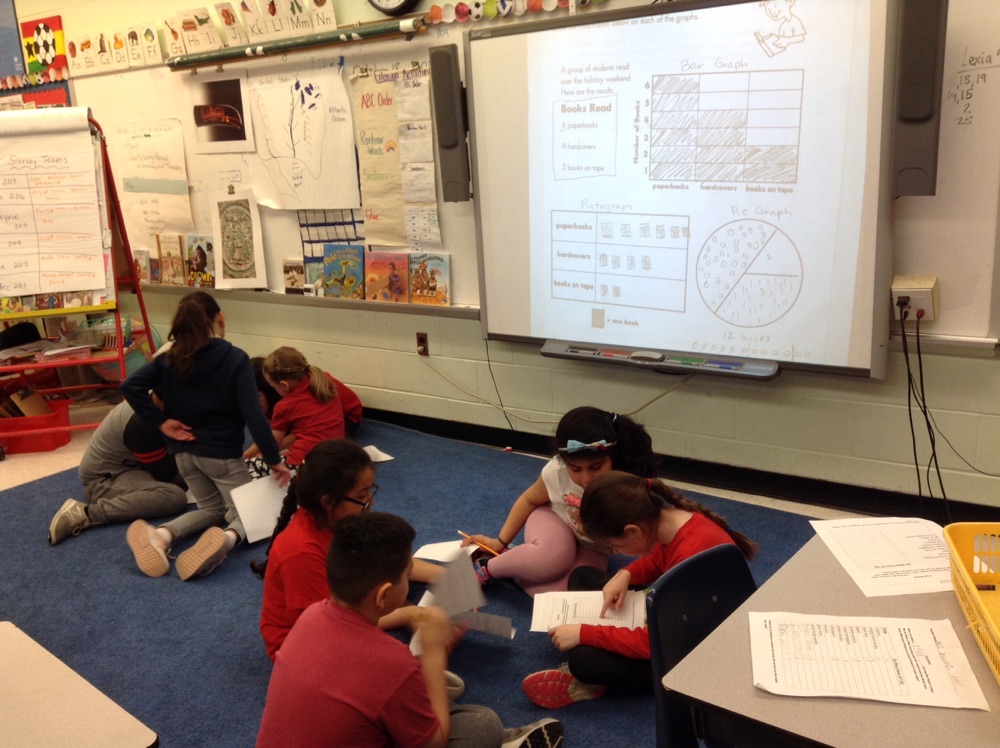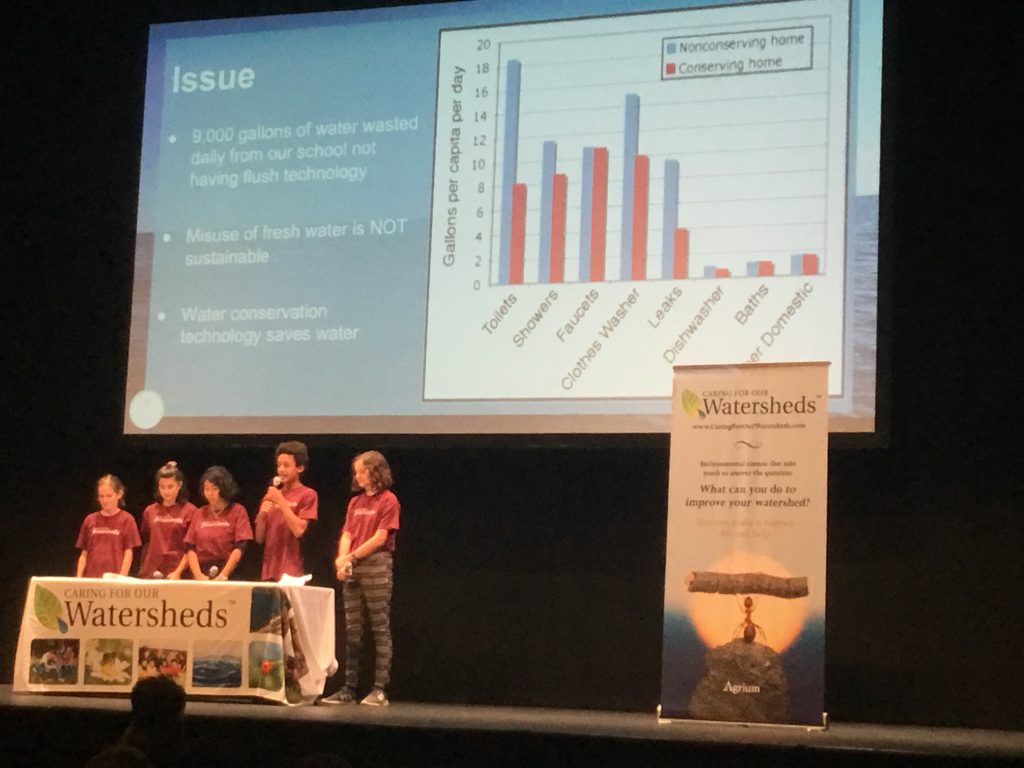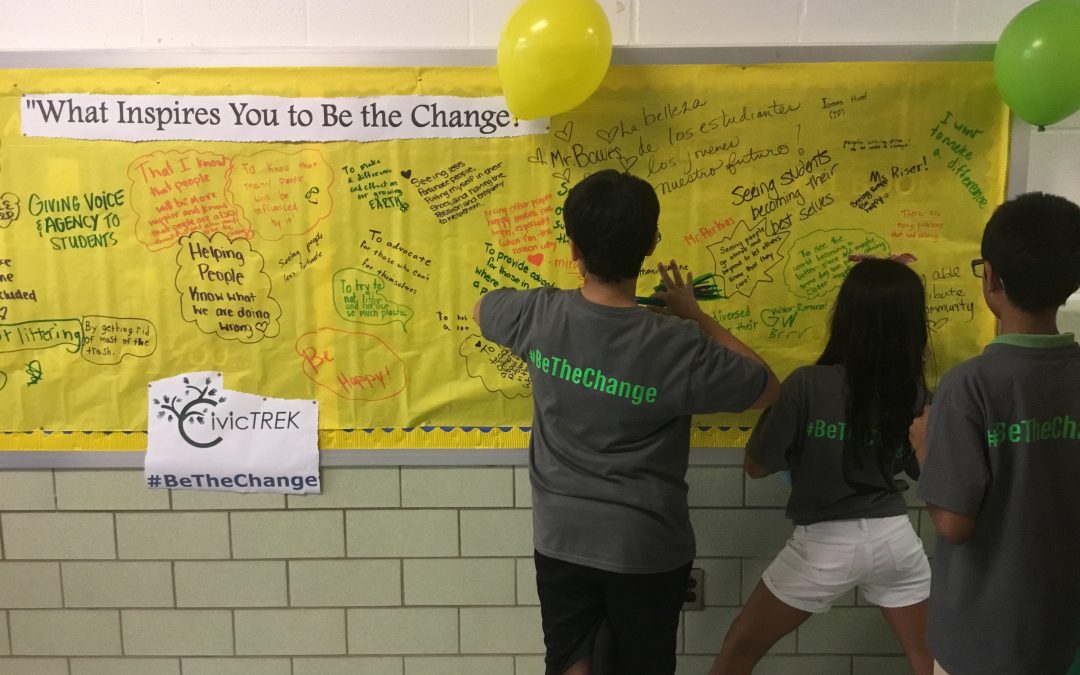By. Susan A. Abravanel
“High-quality, school-based civic learning fosters civic knowledge, skills, and
attitudes; promotes civic equality; builds 21st Century skills; improves school climate and lowers school drop-out rates.” (Guilfoile and Delander, 2014, p. 5)
For the third consecutive year, Virginia’s Alexandria City Public Schools (ACPS) is using CivicTREK, a teaching and learning pedagogy that teachers implement throughout the year with their students. Each year, a cross-disciplinary[1] K-12 CivicTREK cohort of educators is trained and supported to teach their curriculum through engaging students with authentic community issues and problems. As students “TREK” – Tackle Real-world Experiences for Knowledge – they build the academic knowledge, 21st Century skills, and civic dispositions called for in the district’s mission statement, “Every student succeeds: Educating lifelong learners and inspiring civic responsibility.”
CivicTREK began in 2017 as a school-year expansion of its companion program, SummerTrek, a four-week intensive summer service and literacy learning program for middle school students. Both programs are intentionally aligned to state academic standards (VA Standards of Learning) and introduce multiple opportunities for students to experience and demonstrate proficiency in the “Five Cs” (Critical Thinking, Collaboration, Communication, Creative Thinking, and Citizenship) as defined in the Profile of a Virginia Graduate.
CivicTREK is built upon a project-based, service-learning framework. Teachers begin by identifying a set of content and other learning standards that they will teach through the program. Teachers may also begin to look at the curriculum through a different lens, focusing on how the curriculum interacts with the community itself.
A critical element of CivicTREK is student voice: the inclusion of student input and choice in what happens within the school and classroom. While teachers provide support and guidance, students drive each of the five steps of the CivicTREK process:
- Investigate and agree upon a community need.
- Prepare and plan a series of service and learning activities to address the need.
- Act to make a significant difference.
- Reflect purposefully throughout the process.
- Demonstrate and celebrate accomplishments by sharing with others.

Below, we take a look at each of the CivicTREK steps and some examples of ACPS student projects at each step in the process.
Investigate and Agree Upon a Community Need
All CivicTREK projects begin with students selecting a meaningful school, local, national, or global community need that they want to address. As a team, students research and learn as much as they can about the need and brainstorm a plan of action to address it, which includes identifying assets that they or their community have and reaching out to engage possible partners. For example, fifth-grade students in a talented and gifted reading class at Samuel Tucker Elementary School were concerned about the amount of plastic waste in their community. They researched the problem online and conducted an in-class investigation of plastic waste produced at home. At Francis C. Hammond Middle School, sixth-grade science students focused their attention on a critical need in their local watershed. They inventoried water movement and the possible movement of pollutants and planned to address ways to mitigate the polluting materials.
Prepare and Plan a Series of Service and Learning Activities to Address the Need
The next step in the CivicTREK process engages students in working with their community partner to create a strategy for change, develop related service and learning goals, outline a common vision for what success will look like, and establish a way to measure their progress. Students draft a project plan, create a timeline for implementation, and assume specific roles and responsibilities to implement the project. For their CivicTREK project, seventh-grade Honors Life Science students at George Washington Middle School chose a variety of watershed restoration projects to implement in their community. One class focused on invasive species, another on the level of E. coli contamination in the stream, and a third on the state of environmental education in the community. For each project, students assumed specific roles to address their respective topics – some students served as grant writers, some as financial planners, and some as website developers and managers.
Act to Make a Significant Difference
At this point, students implement their project, making sure to record their activities and measure their impact by comparing the status of the community need “before” and “after” project implementation. This allows them to bring attention to the difference they are making in the community through their work. Seventh-grade English Language Learners at George Washington Middle School took on two very different projects to address environmental challenges in their community. One group organized a litter pick-up event, with the larger, long-term goal of helping neighborhood residents change their attitudes toward litter. A second group focused on the erosion impacts of AstroTurf that they saw on soccer fields and yards around the city and set a goal of researching and advocating for sustainable alternatives to their local parks department. To draw attention to their classmates’ efforts, a third group developed a public relations campaign for the larger community that raised awareness of these two environmental problems and their class’s work to address them.
Reflect Purposefully Throughout the Process
Throughout their CivicTREK projects, students are encouraged to think, talk, and write about their learning, how they are making a difference and changing their community, and how the project is changing them personally. While each student’s key takeaways may differ, it’s the collective increase in student learning and engagement over a project’s duration that’s a source of pride for teachers. Notes one ACPS educator, “I am so impressed by the passion students develop through these projects, and how much it enhances their understanding of the science involved. My students are much more passionate about something that they know is ‘real’ – and typically, this is the first time they have done something that is real! The engagement comes from getting students to know that they are part of the solution, and that they have the right to use their voices to make change. If you can spark that in a 12-year-old, think how much more engaged they could become when they are adults!”

Demonstrate and Celebrate Accomplishments by Sharing with Others
Students culminate the CivicTREK process with a showcase event or presentation to the community, sharing their project’s outcomes and highlights and noting what they learned along the way. Students also advocate for the sustainability of their impact by suggesting ways to expand their project and alternative actions that could address the community need, or by teaching others how they can become agents of change. The seventh-grade George Washington Middle School students who focused on watershed issues spent weeks preparing their final demonstration event. According to their teacher, “This is a really daunting experience for most students. It took several weeks to push through their fears of speaking to and with adult professionals, as the students wrote, rewrote, and rehearsed scripts. In the end, their success in presenting was exhilarating for them.” Students also expressed surprise that community problems may be easy to identify but are often not very easy to solve – and even more challenging to keep from recurring.
It is especially important to note ACPS’s sustained support for CivicTREK and project-based service-learning as an effective teaching and learning pedagogy. That commitment has set a growing number of ACPS students on their way to success and becoming lifelong learners, inspired by civic responsibility.
Works Cited
Guilfoile, L. and Delander, B. (2014). Guidebook: Six proven practices for effective civic learning. National Center for Learning and Civic Engagement.
Author Bio
Susan Abravanel is President of Susan Abravanel Consulting, LLC. As an educational consultant, she works with school, nonprofit, and policy leaders to develop strong and measurable outcomes in student academic achievement, civic engagement, and college, career, and workforce readiness. She is currently serving as a contract consultant to Alexandria City Public Schools in Virginia. Abravanel specializes in K-12 educational engagement and achievement, professional development and training, school-community partnerships, civic engagement, summer learning, curriculum development, and legislative advocacy.
[1] Please note that although CivicTREK is designed to support project-based service-learning across content areas (Language Arts, Social Studies, Mathematics, Physical Education, etc.) and all grade levels (K – 12), this article only features examples of projects that have an environmental focus. In the middle grades, CivicTREK coordinates with a parallel ACPS program, managed by Earth Force, that’s specifically focused on addressing environmental issues; some of this article’s examples are supported by CivicTREK and Earth Force.

